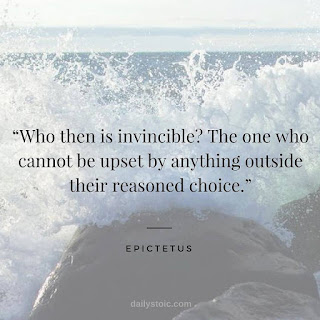"Why, then, should you reject Philosophy as a comrade? Even the rich man copies her ways when he is in his senses. If you wish to have leisure for your mind, either be a poor man, or resemble a poor man. Study cannot be helpful unless you take pains to live simply; and living simply is voluntary poverty. Away, then, with all excuses like: 'I have not yet enough; when I have gained the desired amount, then I shall devote myself wholly to philosophy.' And yet this ideal, which you are putting off and placing second to other interests, should be secured first of all; you should begin with it. You retort: 'I wish to acquire something to live on.' Yes, but learn while you are acquiring it; for if anything forbids you to live nobly, nothing forbids you to die nobly. There is no reason why poverty should call us away from philosophy, – no, nor even actual want. For when hastening after wisdom, we must endure even hunger. Men have endured hunger when their towns ...




